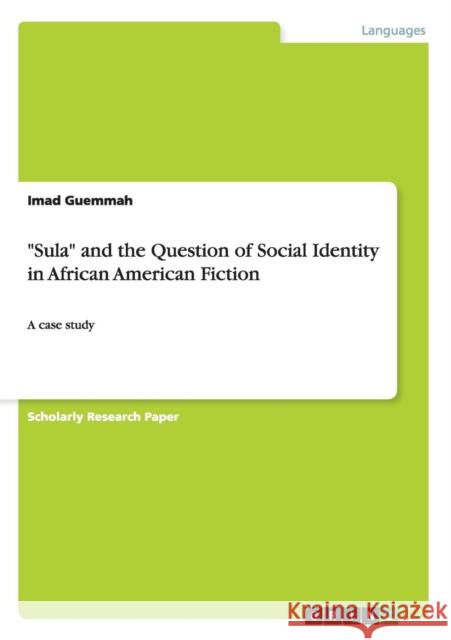Sula and the Question of Social Identity in African American Fiction: A case study » książka
Sula and the Question of Social Identity in African American Fiction: A case study
ISBN-13: 9783656691648 / Angielski / Miękka / 2014 / 44 str.
Scholarly Research Paper from the year 2010 in the subject Literature - Africa, Mohamed I University (literaturevand human sciences), course: extensive reading, language: English, abstract: The paper approaches an exploration of two major themes in Sula: social identity and gender subalternity. I would begin with an overview of the major points that mark the novel, and then shift to violently serious disagreements that bore reference to the submissive, subaltern position that Sula had to encounter. It is common sense to assume a certain Manichean worldview, for societies are bound to declare unorthodox conduct as persona non grata. This will pave the way for questing a priori justifications to the meaning of reality and illusion. Afterwards, I will emphasize the social, racial and psychological facets of resistance and representation, which portray oppressing challenges within society. These result in clear-cut demarcations, which in the event of being drawn, ontological questions germane to identity prove primordial. Next, I am highlighting philosophical explanations of self and other based on two critical angles: androcentrism (i.e. David Hume, Emanuel Kant and Durkheim) and feminism (i.e. Julia Kristeva and Simone de Beauvoir). I am eventually positioning the debate on the narrative platform, as being an arena of tension between central self and peripheral other. The analysis is held from a postmodern perspective. I would therefore attempt to build a bridge between the discourse of Morrison, who is addressing her message in the name of Sula, and that of postmodernism, which is a deviation from representation and a turn towards self-reflexiveness.











